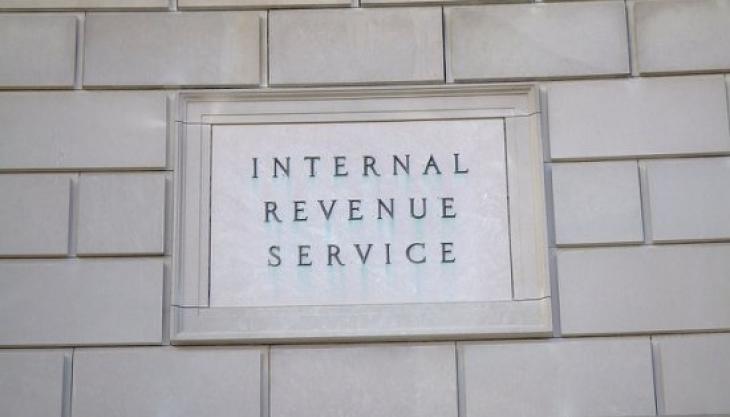
by Paulette Marshall | Mar 20, 2024 | Tax Preparation, Tax Resolution
Tax debt can quickly spiral out of control, leaving you and your businesses feeling overwhelmed and uncertain about your financial future.
How did you get here and what are your options? Let’s explore the web of tax debt, and uncover the underlying causes and the consequences of unpaid taxes.
By understanding all of the factors that can contribute to tax debt and knowing the potential ramifications of not paying your taxes, you can take proactive steps to address your tax liabilities and achieve financial stability.
If you owe $10,000 or more in taxes, contact Action Tax Relief today to schedule a free and confidential consultation to discuss your options.
Understanding the Causes of Tax Debt:
Tax debt can arise from various circumstances, and one of the most common causes is the failure to file tax returns. Whether due to oversight, procrastination, or financial hardship, neglecting to file tax returns can lead to significant penalties and interest charges, exacerbating the overall tax liability.
Underreporting income is another prevalent issue contributing to tax debt. Individuals or businesses may omit sources of income, inflate deductions, or engage in other forms of tax evasion, resulting in inaccurate tax returns and potential IRS audits or investigations. Accruing penalties and interest on unpaid taxes only makes the problem worse, offering even more challenging circumstances for taxpayers to get caught up on their tax obligations.
Another common reason for increased tax debt is due to being audited by the IRS. It can be a daunting experience, and audits may uncover discrepancies or errors in tax returns, leading to adjustments in tax liabilities and the potential for additional taxes, penalties, and interest to be owed.
Moreover, financial hardships such as job loss, medical expenses, or economic downturns can significantly impact an individual’s or business’s ability to meet their tax obligations. When faced with financial difficulties, taxpayers may prioritize other expenses over paying taxes, resulting in mounting tax debt.
Unraveling the Consequences of Tax Debt:
As already mentioned, one of the immediate consequences of tax debt is the accumulation of penalties and interest charges imposed by the IRS or state tax authorities. The penalties and interest significantly increase the total amount owed, making it more challenging for taxpayers to resolve their tax liabilities.
Failure to address tax debt can trigger aggressive collection actions by the IRS, including tax liens, levies, and wage garnishments. Tax liens can affect assets and property, while levies allow the IRS to seize bank accounts, wages, or other assets to satisfy unpaid taxes. Wage garnishments can lead to portions of paychecks being withheld to repay the tax debt.
Having unpaid tax debt can have long-lasting consequences on an individual’s or business’s credit score and financial standing. Tax liens among other collection actions may be reported to the credit bureaus, negatively impacting the taxpayer’s credit score and making it more challenging to secure loans, mortgages, or lines of credit in the future.
In severe cases of non-compliance or tax evasion, taxpayers may face legal consequences, including civil or criminal penalties, fines, or even imprisonment. While criminal prosecution for tax crimes is relatively rare, it can have devastating repercussions on individuals or businesses that are found guilty of tax evasion or fraud.
The stress and anxiety associated with unresolved tax debt can take a significant toll on taxpayers’ emotional and psychological well-being. Constant worry about IRS collection actions, financial instability, and uncertainty about the future can lead to increased levels of stress, depression, and overall mental health challenges.
Navigating the complex web of tax debt requires a thorough understanding of its underlying causes and potential consequences. It’s important to take proactive steps to address tax liabilities and mitigate the impact that they can have on your financial well-being.
If you find yourself weighed down by back taxes, don’t hesitate to contact our office today at 937-268-2737 for a free, no-obligation consultation to review your options and secure your financial future. www.ActionTaxRelief.com

by Paulette Marshall | Mar 18, 2024 | Tax Preparation, Tax Resolution
Tax season is a time of heightened stress for many individuals and businesses grappling with the complexities of their financial obligations. Amidst this anxiety, the Offer in Compromise (OIC) program emerges offering a potential lifeline to those burdened by overwhelming tax debt.
However, while the OIC program holds the promise of resolving tax liabilities for less than the full amount owed, navigating its intricacies can be daunting, particularly for taxpayers attempting to go it alone.
The tax relief professionals here at Action Tax Relief have witnessed the challenges that individuals face when attempting to navigate the Offer in Compromise program without expert guidance.
In this comprehensive guide, we’ll explore the intricacies of the OIC program, shedding light on its potential benefits and pitfalls, and how having a tax relief professional on your side may prove to be even more beneficial on the path to financial freedom.
Understanding Offer in Compromise
The Offer in Compromise program is designed to provide relief for taxpayers burdened by excessive tax debt by offering them a chance to settle their liabilities for a fraction of the amount they owe.
It’s a program that acknowledges how in certain circumstances, taxpayers may be unable to pay their full tax obligations due to financial hardship. By allowing taxpayers to compromise the amount that they pay to the IRS, the Offer in Compromise program aims to provide an easier pathway to resolving tax debt and getting back on track.
Eligibility Criteria
Not all taxpayers qualify for the Offer in Compromise program. To be deemed eligible, you must check the boxes for specific criteria that the IRS has established.
For example, taxpayers must show that they are unable to pay their full tax debt within a reasonable timeframe.
Additionally, taxpayers must be in compliance with all tax filing and payment requirements, including the timely filing of tax returns and payment of estimated taxes.
Submission Process
We are dealing with the IRS, so it comes to no surprise that the process of applying for an Offer in Compromise can be complex and daunting, especially for those that are unfamiliar with the intricacies of tax law.
That’s why tax relief professionals can play a crucial role in guiding taxpayers through this process and helping them prepare and submit a comprehensive offer to the IRS.
From gathering financial documentation to calculating an appropriate offer amount based on the taxpayer’s ability to pay, tax relief professionals can ensure that every aspect of the offer is carefully considered and presented to the IRS for review.
Evaluation and Review
Once the offer is submitted, the IRS conducts a thorough review of the taxpayer’s financial situation to determine its acceptance or rejection. This review process usually includes an assessment of the taxpayer’s income, expenses, assets, and liabilities.
A tax relief professional will help guide you on all of the necessary supporting documentation and arguments to demonstrate why the offer should be accepted. They are there to help advocate on behalf of their clients during this review process and help to eliminate much of the stress that comes with the process.
Tax relief professionals help increase the likelihood of a favorable outcome for their clients because of their extensive experience handling these matters.
Acceptance and Settlement
If the IRS accepts the offer, taxpayers are required to fulfill the terms of the agreement. This may involve making a lump-sum payment or installment payments over time.
Tax relief professionals work closely with their clients to ensure compliance with the terms of the settlement, and they provide guidance and support every step of the way.
By handling the communication between the taxpayer and the IRS and facilitating the process, tax relief professionals help streamline the settlement process. This can ease the burden of the taxpayer and tremendously reduce the amount of stress they would have been put through had they handled it all on their own.
Benefits of Offer in Compromise
The Offer in Compromise program offers numerous benefits for taxpayers struggling with overwhelming tax debt.
By settling their tax liabilities for less than the full amount owed, taxpayers can achieve significant savings and financial relief.
Offer in Compromise also provides a pathway to a fresh start, allowing taxpayers to regain control of their finances and finally move forward with confidence.
Additionally, by resolving their tax issues through the OIC program, taxpayers can avoid the stress and uncertainty of IRS collection actions, such as levies and liens, providing immediate relief from the burden of unpaid taxes.
Tax relief professionals play a crucial role in guiding taxpayers through the complexities of the OIC program, advocating on their behalf and ensuring the best possible outcome.
If you’re burdened by unpaid taxes and struggling to make ends meet, contact Action Tax Relief today to schedule a free and confidential consultation at 937-268-2737. We will help you navigate the process and secure a favorable outcome with the IRS, paving the way for a brighter future for you. www.ActionTaxRelief.com

by Paulette Marshall | Mar 11, 2024 | Tax Preparation, Tax Resolution
Taxes can be complex and overwhelming. When back tax debt comes into the picture, things can get a bit more complicated and stressful. If you fail to pay your back taxes, two terms often surface: “lien” and “levy.”
These terms have specific meanings and consequences in the realm of taxation, and understanding the differences is essential for anyone seeking tax relief.
Let’s demystify these terms and explore their implications.
Note: If you’re facing threatening letters from the IRS or have a “Notice of Federal Tax Lien”, call us immediately to find what tax relief options you may qualify for 937-268-2737.
What Is a Tax Lien?
A tax lien is a legal claim against a taxpayer’s property or assets, serving as collateral for unpaid tax debt. It is not an immediate seizure of assets but rather a legal encumbrance that alerts creditors and potential buyers that the taxpayer owes the government money. Let’s take a closer look at tax liens and what they mean.
Filing a Tax Lien:
When a taxpayer has unpaid tax debt, the IRS or state taxing authority may file a Notice of Federal Tax Lien or equivalent state document. This notice is recorded in public records, making the tax debt a matter of public record.
Impact on Credit Score:
A tax lien can have a severe impact on the taxpayer’s credit score. It can make it challenging to secure loans or credit and can result in higher interest rates on existing credit.
Asset Encumbrance:
While a tax lien does not immediately result in the seizure of assets, it encumbers the taxpayer’s property and assets.
This means that if the taxpayer tries to sell property or assets with a tax lien, the IRS or state will typically have a claim on the proceeds.
Priority Status:
Tax liens often take precedence over other creditors, including 2nd mortgage holders and other creditors. This means that the government’s claim is superior, and they have a first right to the taxpayer’s assets.
Lien Release:
A lien can be released once the tax debt is fully paid or when the taxpayer arranges an alternative payment plan with the taxing authority. It’s essential to resolve a lien promptly to regain control over your assets and credit.
What Is a Tax Levy?
A tax levy, on the other hand, involves the actual seizure of a taxpayer’s property or assets to satisfy unpaid tax debt. It represents a more aggressive collection action by the IRS or state taxing authority. Let’s review the key aspects of a tax levy.
Issuance of Levy:
A tax levy is a legal action taken by the IRS or state to collect unpaid taxes. It can result in the seizure of bank accounts, wages, vehicles, real estate, and other valuable assets.
Bank Levy:
A common form of tax levy is a bank levy, where the IRS or state taxing authority freezes and eventually withdraws funds from the taxpayer’s bank account to cover the unpaid tax debt.
Wage Garnishment:
A wage levy, or garnishment, involves continuously taking a portion of the taxpayer’s wages or salary (up to 90% of their net pay in certain situations) directly from their employer to satisfy the tax debt. This can have a significant impact on the taxpayer’s income.
Asset Seizure:
In extreme cases, the IRS or state can seize and auction off the taxpayer’s assets, including real estate, vehicles, or personal property, to recover the unpaid taxes.
Levy Release:
To release a levy, the taxpayer must address the tax debt by either paying it in full, arranging a payment plan, filing delinquent tax returns or demonstrating that the levy is causing severe financial hardship. Once the issue is resolved, the taxing authority will release the levy.
If you find yourself dealing with tax liens, levies, or other tax-related challenges, contact 937-268-2737 today to help you resolve your tax issues and achieve financial stability.
Avoiding Tax Liens and Levies
The best way to avoid having to deal with tax liens and levies is to avoid them in the first place. Here are some proactive steps you can take:
1. Timely and Accurate Filings:
File your tax returns on time and ensure they are accurate. Filing extensions or incorrect information can trigger audits and tax debt.
2. Regularly Review Tax Returns:
Regularly review your tax returns, checking for errors, discrepancies, or potential red flags that might invite IRS scrutiny.
3. Pay Taxes Promptly:
Pay your taxes on time and in full. If you can’t pay, consider options like installment agreements or an offer in compromise to settle your debt.
4. Seek Professional Guidance:
Tax relief professionals like Action Tax Relief play a vital role in assisting individuals and businesses facing tax issues, from negotiating with taxing authorities to developing strategies for lien and levy resolution. If you have back tax debt today, contact us for a free consultation. www.ActionTaxRelief.com

by Paulette Marshall | Jan 22, 2024 | Tax Preparation, Tax Resolution
Back tax relief is a lifeline for individuals and businesses burdened by unpaid or delinquent taxes.
As tax relief professionals, we understand that navigating the IRS maze of complexities of back taxes can be overwhelming.
In this article, we’ll provide an in-depth perspective on what back tax relief is, its significance, and how it can transform your financial outlook. Contact our office today at 937-268-2737 to understand how exactly back tax relief pertains to your situation.
What Are Back Taxes?
Back taxes, sometimes referred to as delinquent taxes or tax arrears, are taxes that have not been paid by the due date.
They can result from various factors, including underreporting income, failure to file tax returns, audit assessments or disputes with the IRS over tax liabilities.
Regardless of the cause, back taxes accumulate interest and penalties over time, making the debt grow substantially.
The Importance of Back Tax Relief
Back tax relief is a crucial solution for individuals and businesses facing the burden of unpaid taxes. Here’s why it matters:
- Financial Relief: Back tax relief programs aim to alleviate the financial strain caused by unpaid taxes. By negotiating with the IRS or state tax authorities, tax relief professionals can help reduce the overall tax debt or develop manageable payment plans.
- Preventing Penalties: Unpaid taxes often lead to the accrual of penalties and interest, significantly increasing the total amount owed. Back tax relief strategies can include penalty abatements, reducing the financial burden on taxpayers.
- Preventing Severe Enforcement Actions: The IRS has the unbridled authority to take actions such as wage garnishments, bank levies, and property seizures to collect unpaid taxes. Back tax relief professionals work to prevent or release these enforcement actions, safeguarding your assets and income.
- Resolution of Complex Issues: Tax disputes and issues related to back taxes can be intricate. Tax relief professionals possess the expertise to navigate these complexities, ensuring that you receive fair treatment and an optimal resolution.
Key Components of Back Tax Relief
Now, let’s delve into some of the key components and strategies involved in back tax relief:
- Offer in Compromise (OIC): OIC is a program that allows eligible taxpayers to settle their tax debt for less than the full amount owed. Tax relief professionals assess your financial situation and negotiate with the IRS to reach a mutually acceptable offer. However, there are strict eligibility requirements.
- Installment Agreements: An installment agreement enables taxpayers to pay their back taxes over time through manageable monthly payments. Tax relief professionals can negotiate favorable terms and ensure compliance with the agreement. In some cases, you can request a partial pay installment agreement which can reduce what you owe.
- Penalty Abatement: IRS penalties can significantly inflate your tax debt, and tax relief professionals can advocate for penalty abatement, reducing or eliminating these additional charges.
- Currently Not Collectible (CNC) Status: If you are experiencing financial hardship, tax relief professionals can help you obtain CNC status, temporarily suspending tax collection efforts until your financial situation improves.
- Audit Representation: If your back tax issues stem from an IRS audit, tax relief professionals can represent your interests, gather required documentation, and negotiate with auditors to reach a resolution.
The Role of a Tax Relief Professional
Tax relief professionals are your allies in the journey to resolve back tax issues by offering their expertise, negotiation skills, and in-depth knowledge surrounding the regulations and procedures that are necessary when dealing with the IRS.
More than anything, tax relief professionals offer you peace of mind and help alleviate the stress and anxiety associated with back taxes.
If you find yourself weighed down by back taxes, don’t hesitate to contact our office today at 937-268-2737 for a free, no-obligation consultation to review your options and secure your financial future. WWW.ACTIONTAXRELIEF.COM.

by Paulette Marshall | Jan 17, 2024 | Tax Resolution
The IRS is known for its formidable reputation when it comes to collecting taxes and pursuing non-compliant taxpayers.
However, there are common misconceptions about the extent of their powers and the severity of the tactics they can pose.
In this article, we’ll shed light on some common IRS tactics and what the IRS can actually do, providing valuable insights from a tax relief professional’s perspective.
If you have dealt with any of the common tactics listed below, contact our office today at 937-268-2737 for a free, no-obligation consultation to review your options WWW.ACTIONTAXRELIEF.COM.
Tactic #1: Seizing Your Home or Assets
One of the most feared IRS tactics is the potential seizure of your home or assets. Many taxpayers worry about losing their property if they owe back taxes.
Reality: While the IRS does have the authority to place liens on your property, and they will, seizing your primary residence is rare and is a complex process, and the IRS often prefers alternative collection methods, such as wage garnishments, bank levies and taking your accounts receivable if you are self employed or run a business. A second or vacation home however, is fair game for the IRS.
Tactic #2: Jail Time for Unpaid Taxes
Some taxpayers fear that unpaid taxes will lead to imprisonment. The idea of going to jail due to tax debt is a pervasive myth. However, many Americans have been convicted and gone to jail for not filing legally due income tax returns.
Reality: While the IRS can pursue criminal charges for non-filing and unpaid taxes, they rarely go this route. In most cases, the focus is on collecting what is owed, not criminal prosecution. However, it’s crucial to address tax debt promptly to avoid escalating issues.
Tactic #3: Garnishing Your Entire Salary
Many individuals worry that the IRS can take their entire paycheck through wage garnishments, leaving them with nothing to live on.
Reality: The IRS follows specific guidelines for wage garnishments, which consider your income, deductions, and necessary living expenses. However, it is true that the IRS can take up to 80% of your net pay to satisfy your IRS obligations.
Tactic #4: Freezing Your Bank Accounts
The idea of the IRS freezing your bank accounts can be terrifying, as it implies immediate financial turmoil.
Reality: The IRS can levy your bank account to collect unpaid taxes, but they typically provide notice before taking such action. Additionally, you have rights to appeal and negotiate a release of the levy, allowing you to access your funds. The IRS allows you 21 days, from the date of the levy notice, to attempt to have the funds returned to your bank account.
Tactic #5: Never-Ending Interest and Penalties
Taxpayers often worry that interest and penalties on unpaid taxes will accumulate endlessly, leading to insurmountable debt.
Reality: While interest and penalties can significantly increase your tax debt over time, there are options for reducing or eliminating them. Tax professionals can help negotiate penalty abatements and explore payment plans to manage the debt effectively. With IRS interest rates at 8% charged on unpaid taxes today, your debt can literally double in a short period of time when you take into account the daily compounding of interest and penalties that are left unresolved.
Tactic #6: Losing Your Passport
The IRS has the authority to revoke or deny a passport if you owe a significant amount of unpaid taxes.
Reality: This is a relatively recent enforcement tool used by the IRS, primarily targeting individuals with tax debt over $50,000 who are actively avoiding their obligations. Most taxpayers will not face passport revocation if they engage in resolving their tax issues.
Tactic #7: Endless Audits
Some taxpayers believe that once audited, they’ll be subjected to continuous audits, creating an ongoing burden. However, the IRS will want to audit the prior and subsequent periods all at the same time. For example, if the IRS is auditing your 2021 return, they will also be looking at 2020 and 2022 simultaneously.
Reality: IRS audits are typically conducted to address specific issues within a tax return. While being audited can be stressful, it does not automatically lead to perpetual audits. Addressing any identified concerns can bring the audit to a close.
Tactic #8: Imminent Seizure of Business Assets
Business owners often worry that the IRS will seize their business assets, leading to the collapse of their livelihood.
Reality: The IRS does have the authority to padlock your business, but this is typically a last resort. They prefer to work with businesses to establish payment plans or negotiate settlements that allow the business to continue operating.
However, owing payroll (941) taxes is a double whammy. Not only can the IRS go after your business, they can also go after you personally.
Understanding the reality behind common IRS tactics is essential for taxpayers facing tax issues. While the IRS has unbridled power to collect unpaid taxes, they prefer resolution over severe enforcement actions.
Seeking assistance from a tax relief professional can help you navigate the IRS maze of complexities, negotiate manageable solutions, prevent them from enforcing collection against you, and protect your rights and options.
Don’t let fear of IRS tactics paralyze you—take proactive steps today to address your tax challenges and find a path toward resolution.
Contact our office today at 937-268-2737 for a free, no-obligation consultation to review your options WWW.ACTIONTAXRELIEF.COM.





